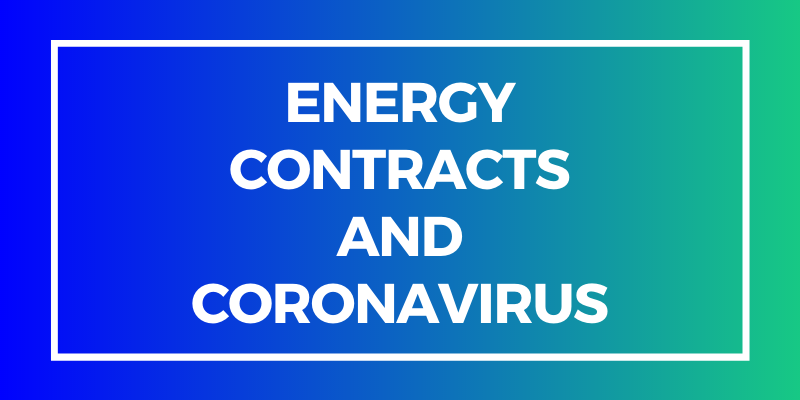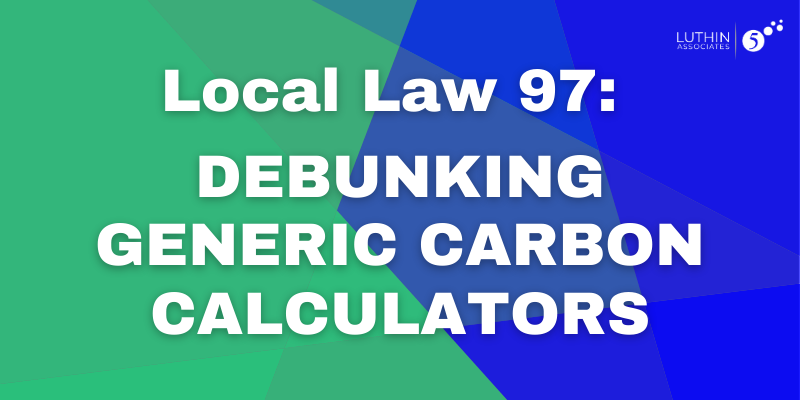May 2020 it is likely to be the 5th month in a row where Real-Time LMP (spot) prices in New York City (NYISO Zone J) have settled at their lowest levels in ten years. Figure 1 shows the monthly settlement price in Zone J from 2011 to 2020. Note that the first five months of 2020, shown in the dark green line, are less than all other monthly settlement prices.
3 min read
Lowest Spot Power Prices in a Decade in NYC
By 5 on May 27, 2020
Topics: Markets NYISO
4 min read
Good News and Bad News for New York Electricity Clients
By 5 on April 22, 2020
There is often both good and bad news anytime commodity markets are volatile.
The bad news:
Earlier this month, the NYISO (the entity in charge of economically maintaining the electricity system in New York) completed the first two of three capacity auctions that ultimately set the price paid for capacity in the coming summer months (May – Oct 2020). Many were anticipating higher summer capacity prices (especially in New York City) from this month’s auction given how high forward capacity prices have been. Historical capacity prices for New York City and the rest of New York State are shown in Figure 1.
Topics: Markets NYISO
2 min read
Energy Contracts and Coronavirus
By 5 on March 19, 2020
In light of the impact of the Coronavirus on business operations, we are sharing information about Coronavirus and Contract Disputes circulated by the law firm Sidley & Austin. It provides a high-level summary of the force majeure issues raised by the spread of this illness. If your electricity and/or natural gas usage has or will be significantly affected by the spread of the Coronavirus, you should seek legal advice to determine if it is appropriate to provide a force majeure notice to your energy supplier. As discussed in the document, the relevant electricity or natural gas contract provision may require “prompt” notice of the force majeure event.
Topics: Markets PJM NYISO ERCOT Education
3 min read
Capacity is Up and Power is Down
By 5 on March 19, 2020
Over the past month, there have been a few regulatory developments that will affect generators, their amount of generating capacity and the cost of that capacity throughout New York State. Recently, the Federal Energy Regulatory Commission (FERC) issued several rulings related to the ways subsidized renewable generating assets will be able to participate in future NYISO capacity auctions. These rulings place limits on the way generation from subsidized assets, such as wind farms, solar arrays and battery storage resources, can take part in New York’s capacity auction process. Furthermore, New York State placed additional emissions restrictions on natural gas and oil-fired assets that run during periods of peak electricity demand on the grid.
Topics: Markets NYISO Resiliency
3 min read
Higher Power Prices are Coming to NYC
By 5 on February 26, 2020
Wholesale electricity prices in New York have been falling for the past several years. Figure 1 shows how the price of electricity in New York City, for the period March 2020 to April 2021, has traded over the last six years. This chart shows that prices have fallen from a high of $80/MWh in the summer of 2014 to current all-time lows of $32.56/MWh. One might assume that these low wholesale electricity prices would translate into lower retail electricity prices. Wholesale electricity is only one of several other pricing components that make up a retail electricity price. After electricity, the next largest price component is Capacity and, unfortunately, Capacity prices have risen dramatically in New York City.
Topics: Markets NYISO
1 min read
Spring Energy Market Webinar
By 5 on February 24, 2020
We are excited to have you join us for one of our upcoming regional market webinars.
Topics: Markets PJM NYISO ERCOT
2 min read
Rate Increases Approved in Con Ed For Power and Gas
By 5 on January 28, 2020
In early 2019, Con Edison (Consolidated Edison, Inc.) filed for a substantial rate increase for both electric and gas service. The original proposal (“Original Filing” in Table 1) called for electric delivery rates to increase by 7.2% over 3 years, and gas to increase by 12.2% over the same period. Overall bill increases would have been even larger. In dollar terms, the Company’s original proposal would have increased electric revenues by $2.42 billion over 3 years and gas revenues by over $1.06 billion.
Topics: Markets NYISO
3 min read
Upstate is Down and Downstate is Up
By 5 on October 25, 2019
Anyone from New York knows that New York is really made up of two states: upstate and downstate. Some will even put a finer point on this and claim that New York City is distinct from downstate and the same can be said of New York’s electricity markets. Today, there are two factors that have a significant impact on the price of electricity throughout New York. One of those factors is tied to regulatory developments in Albany and the other is connected to the way capacity has been trading across the state.
Topics: Markets NYISO
2 min read
Local Law 97: Debunking Generic Carbon Calculators
By Luthin Associates on October 24, 2019
New York City’s Climate Mobilization Act, especially Local Law 97, sparked the creation of generic carbon calculators for buildings to assess occupancy class and emission limits. Although intended to be helpful, not all are accurate.
Topics: Markets NYISO Sustainability Education Renewables
2 min read
New York's Peak Demand Day was a Saturday?
By 5 on September 19, 2019
Since fall officially arrives next week, we‘d like to review what happened in New York’s energy markets over the summer. Two stories are worth mentioning:
- Peak electricity demand in New York, which sets all business’ capacity obligations, likely occurred over the weekend of July 20, 2019
- Low spot natural gas prices kept Real-Time electricity prices in check all summer throughout the state




